
As the amount of data being produced in the world increases, it is becoming essential to create systems to store, handle, and manage this existing data. The primary objective of most companies is to ensure that their product (whether data lakes or data warehouses) offers the best performance to its users, developers, and researchers.
In this article, we will aim to cover some of the best tools available in the market to improve and optimize data warehouse performance.
Data Warehouses
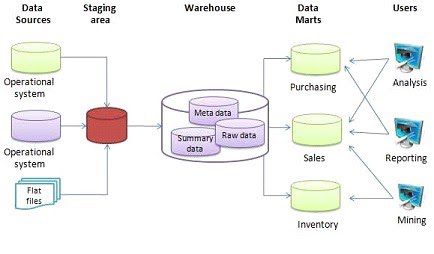
Data warehouses are considered one of the most essential components of business intelligence. A data warehouse is a central repository that acts as a central location where most data entities can be managed. The data stored in data warehouses are typically utilized to perform numerous queries and analyses on the historical data stored in these repositories.
These data warehouses perform the task of centralizing and consolidating large amounts of data from multiple data sources. They help improve the quality of data as the data is consistently monitored with codes and descriptions. They help restructure the data to provide excellent query performance to its business users.
Best Tools to Optimize Data Warehouse Performance
As understood in the previous section, data warehouses are highly beneficial and offer fantastic utility to most companies for a large array of tasks. Hence, it is important to understand what tools can help you optimize the performance of data warehouses to achieve the best results possible.
In this section of the article, we will look at four wonderful tools that you must utilize to receive the highest performance and optimize the result obtained from data warehouses.
1. Firebolt
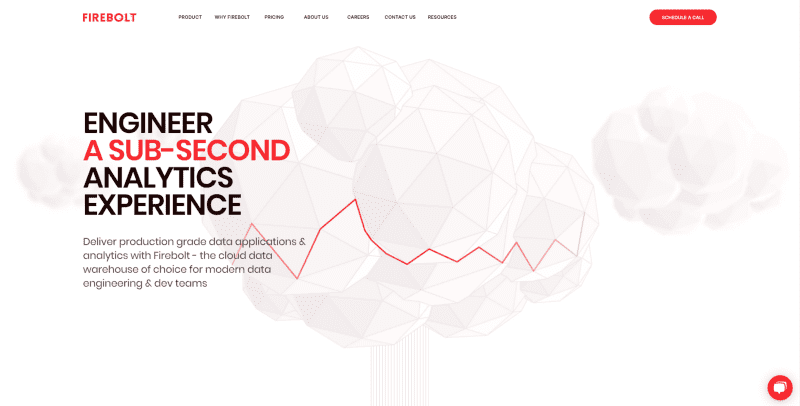
If users are looking for one of the best modern-day solutions to handle most of the complex problems related to data warehouses, then Firebolt is a standout choice. The architecture of this tool incorporates high flexible elasticity, allowing developers to match any workload with the right compute resources. The platform allows you to focus on your personal requirements while the interior contents, like performance optimization, management of clusters, and storage management, are successfully handled by their technology.
The efficiency of the Firebolt optimization tools for data warehouses is almost unparalleled because it handles most of the complex data with lesser hardware requirements. You can also fine-tune their product according to your needs such that you have the best suitable use case for your particular work scenario.
They provide granular control for your computations and resource cost. The computing cost is less than 1$ per hour, and the storage cost is the S3 list price (~23$/TB). It is highly recommended that data warehouse users check out the tool for the highest optimization.
2. Amazon Redshift
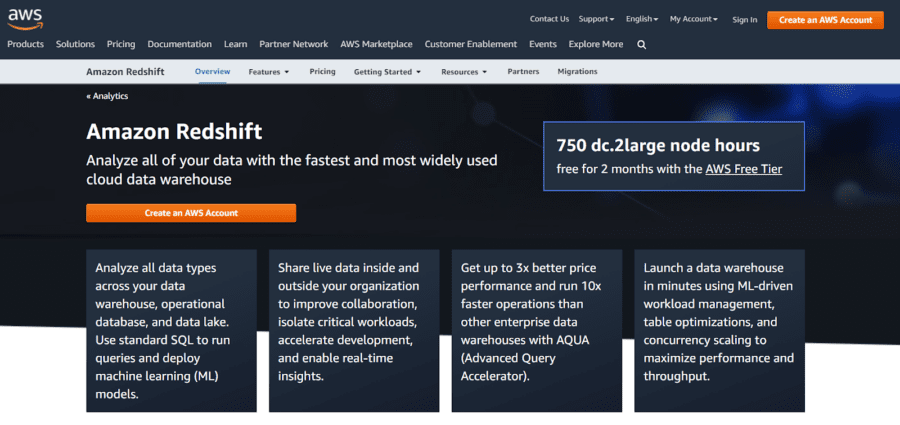
Amazon Redshift is a highly scalable global data warehouse tool. Thanks to Amazon’s already extensive support system, it can offer a wide variety of components for users to get started with, especially with the help of its integrations with third-party services. Using this tool, you will be able to apply most structured query language (SQL) codes to run queries and train and deploy machine learning algorithms.
You also have the option of utilizing AQUA (Advanced Query Accelerator), which allows developers to perform 10x faster operations on most data warehouse tasks. The pricing starts at $0.25 per hour and can scale up to petabytes of data with thousands of concurrent users. However, one of the cons of this mainstay platform is its slightly complex platform user interface.
3. Azure Synapse Analytics
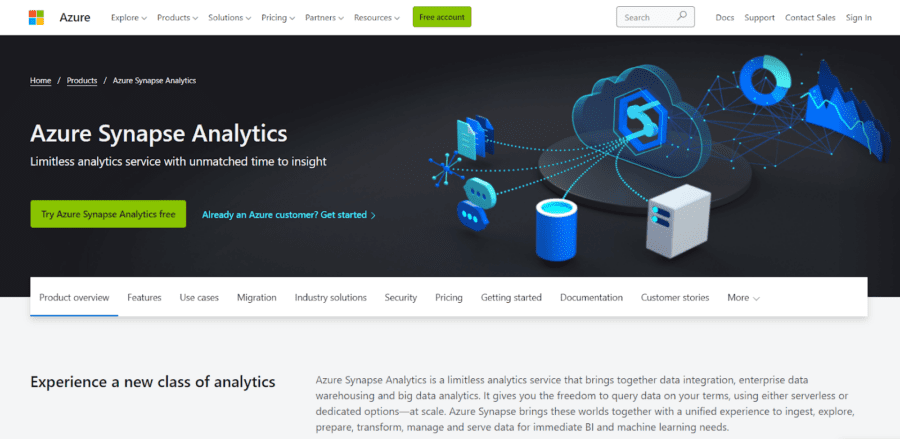
Azure Synapse Analytics by Microsoft is another amazing tool that complements data warehouses. It also grants access to the handling of data lakes and other data integrations if required. It is one of the rare tools that offer this support of managing both data warehouses and data lakes together.
While most of the services offered by this platform are concrete and fast, it can take some time for most beginner developers to get used to due to its complex overall structure.
The platform guarantees high-speed service for most tasks related to data warehouses and data analytics, along with powerful insights. In addition, it offers some of the most advanced security features and a free account to test out a trial version. However, more of the advanced features and higher control is only accessible through their paid services, which can be checked out on their site.
4. IBM Db2 Warehouse
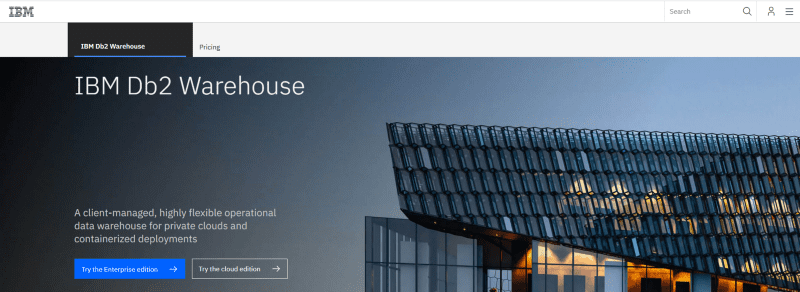
IBM Db2 Warehouse is one of the more user-friendly options for handling data warehouses. You can access large amounts of data in the data warehouses and handle them with ease, no matter your skill level with optimization tools. While the user interface is innovative and the overall setup takes very little time, the service is only available in limited regions. Hence, it is not accessible to some developers.
This tool offers high-level control over all the data and other applications in the data warehouse. It is a brilliant tool that is worth trying out if the support for this item exists in your specific region. The platform offers a developer version that you can try for free by installing it on your laptop or any virtual machine. However, for more advanced usages, you should look at the paid enterprise edition.
Conclusion
Data warehouses are a fabulous resource in the modern world of cloud computing. They offer a huge amount of storage space for performing a variety of operations—data analytics, visualizations, machine learning, business intelligence, and so much more. Without data warehouses, it becomes extremely difficult to handle most complex tasks. Hence, it becomes essential to not only use data warehouses but also ensure that their performance is optimized accordingly. It is best to try out four of these best tools for a guaranteed performance boost in your data warehouse.
Cover Photo by Nana Smirnova on Unsplash
